Listen to Aviation English Radio
Prepare for your ICAO test, learn aviation theory, hear student experiences and get hints and tips to improve your English.
Learning Advice
Aviation English Asia Ltd courses are renowned for their communicative method. In this section of Learning Zone you can learn about best practice in language acquisition and how you can adopt an effective method of learning English.
- Details
- Written by: Michael Egerton
- Parent Category: Learning Zone
- Category: Learning Advice
When we began teaching English to pilots, ATCOs and aircraft engineers way back in 2009 we were already familiar with e-learning as we had previously been working within organisations that heavily relied on the internet for course delivery. But despite the apparently amazing technology, there were many barriers to online learning.
Some of the difficulties learners expressed included:
- flash-based software that became obsolete
- rigid course syllabus that didn't reflect all learners needs
- "unique" speech recognition software that is less accurate than Siri
- online courses that left learners feeling abandoned to study on their own
- test focused courses that exploited pilots urgent need to pass an ICAO test
- mindless left clicking through pages of courses that were little more than talking textbooks
If you work for an airline you may recognise the last one from your CRM training, and it's really a problem of the software developers promising technologies that didn't yet deal with the needs of language learners. And that's the key, we are dealing with language learners wanting language practice not learners of fact and information.
If 2020 brought anything good, it's the adoption of video messaging services that made learners more comfortable with remote learning. But some organisations haven't understood what is and isn't possible to conduct online yet - which again is a result of not acknowledging that language learners are not the same as learners of fact and information.
The technology still isn't perfect, and some organisations still have a pretty unrealistic idea of what is possible in online classes (30-80 mixed-level learners in a 3 hour lecture??!?) but it is better - and Aviation English Asia Ltd is upfront about what is and isn't beneficial to learners.

So how has learning aviation English online changed in 2021?
Looking at some of the barriers to learning listed above, the most important development is that Aviation English teachers now have a stronger understanding of what should and shouldn't be included in a course syllabus. All good aviation English teachers now recognise that replicating and reciting tests is harmful for learners. Following on from that, there are now a lot more high quality learning materials available suitable for a variety of levels and aviation experience. And following on from that, more and more tests are aligning to the AEROSTA Framework which measures their conformity to the aims of ICAO 9835 and Circular 323.
But many organisations are far behind Aviation English Asia Ltd with regard to learner support and managing their expectations. Why is Aviation English Asia Ltd so good? Mostly because we recognise that each learner is different and can't be shoe-horned into a specific course. Courses are just tools to help facilitate language proficiency, not the end result or desired qualification. With that in mind, you as a learner can trust our judgment about which course materials are right for you. With the exception of excellent software like PlaneEnglish AR Sim, we recommend that learners with a pronunciation problem abandon speech recognition in favour of getting feedback from a qualified aviation English teacher in an Online Tutorial. Repeating individual words to a computer is not as useful as being able to pronounce words in a meaningful sentence intelligibly.
So if you are not able to attend a course with us in Hong Kong, the next best option may be to attend some of our Online Tutorials. We will choose the best tools available for the job and advise you as best we can.
There are still some barriers to learning, for example we still can't guarantee if your class will be with a Subject Matter Expert rather than aviation familiar Language Expert. We can't guarantee a stable internet connection but this is a relatively minor inconvenience. We can't guarantee that an environment be free from background noise although this is rare. We can't guarantee that other learners won't try to speak at the same time or be subject to delays.
Aviation English Asia Ltd can guarantee
- Online Tutorials are one-to-one or with an appropriate number of other learners of similar experience
- our teachers can give you sufficient attention regardless of the class size
- our teachers can give you feedback after each class and pass on that feedback to our other teachers
- learning materials and language tasks are suitable for the experience and proficiency of the learner
- we can offer classes in most time zones
- we will reschedule the class if the internet connection fails
- our teachers are suitably qualified and experienced
- value for money
- an enjoyable and beneficial course
For more information about Aviation English Asia Ltd’s Aviation English Online Tutorials visit http://aviationenglish.com/icao-aviation-english-online/aviation-english-skype-tutorials. When you are ready to improve your English email
#AviationEnglishAsia #AviationEnglish #online #listening #pronunciation. #elearning #tutorials
- Details
- Written by: Michael Egerton
- Parent Category: Learning Zone
- Category: Learning Advice
Advice about how to improve your listening comprehension from Aviation English Asia.
Article written by Michael Egerton
A lot of candidates initially find listening comprehension of pilot / controller dialogues difficult and ask what they can do to practice in between classes. Some candidates had previously spent a lot of time watching youtube videos and reading transcripts and were wondering why their listening comprehension was not improving.
The problem with using youtube videos for listening practice is that:
- The quality of the recordings is often poor and affected by unreasonable levels of interference.
- The recordings are often unorganised and do not relate to specific language tasks for flight.
- The transcripts are often incorrect, and sometimes the transcript doesn't reveal implied meanings and intentions.
- Reading a transcript simultaneously doesn't provide much listening practice.
- Rewinding and playing a recording to hear missed information is not a "natural" human listening process, and can lead to a learner focusing on unimportant words at the expense of developing a more global gist understanding.
Furthermore, most recordings are not pitched at a particular level, so this type of (mostly FAA) audio might not be suitable for self study.
Self-study definitely has it's place, so here we present our best resources for improving your listening comprehension.
The five most effective methods of improving your listening comprehension
1. Enrol in an Aviation English course with Aviation English Asia Ltd - we can't stress this enough. We have more than 10 years experience training high-stakes candidates to accurately comprehend clearances. The most important thing when you want to improve your listening comprehension is to get feedback. There are two courses suitable for you - if you have less than 250 flying hours and are applying for a Cadet Pilot Programme attend this course. If you are an airline pilot attend this course for Commercial Pilots.
2. Aviation English Radio is a free resource available on www.aviationenglish.com with a lot of free listening material that has been specifically selected to help you improve from ICAO level 4 to 5. We sometimes talk about these recordings in our classes, so join us to get feedback. 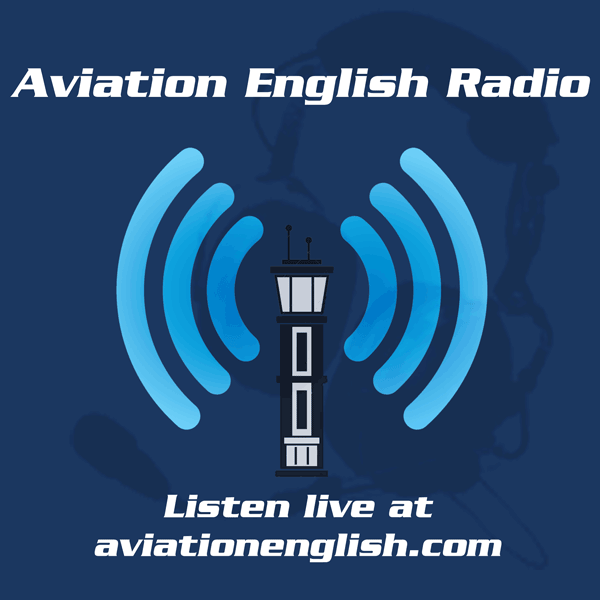
3. Some candidates need more practice with listening comprehension than others, so we have opened some additional ICAO Aviation English Listening Comprehension Supplementary Classes on Tuesday evenings.
4. Is it really a problem with listening comprehension, or is that you are not familiar with the flow of pilot/controller communications? Is it because you cannot recognise the sound of words that you already know, or is it that you cannot recognise the sound of words in combination with other words. Practice in a classroom with Aviation English Asia Ltd's skilled teachers will identify why you have a problem in your listening comprehension, and we will work with you to identify the reasons why and then provide specific training to help you.
5. The new version of ICAO Aviation English Online offers 100 hours of listening practice. When we designed the ICAO Aviation English Online course we decided that it had to be better than a classroom based course, or deliver insight and feedback that can't be done in a classroom. We will inform you when this becomes available.
For more information about Aviation English Asia Ltd’s courses please visit http://aviationenglish.com. When you are ready to improve your English email
#AviationEnglishAsia #AviationEnglish #comprehension #listening
- Details
- Written by: Michael
- Parent Category: Learning Zone
- Category: Learning Advice
Advice about how to prepare for a CLEAR ICAO English Assessment from Aviation English Asia.
Article written by Michael Egerton
In this article I’m going to provide guidance about how to best prepare for the CLEAR ICAO Assessment in Hong Kong. CLEAR is an ICAO Language Proficiency test designed for commercial pilots. The CLEAR Testing Toolkit was created with great intentions by our friends Henry and Dennis, who we have great respect for. In the middle East CLEAR has been effectively implemented by our friend and ally Daniel. However, in Hong Kong the CLEAR Assessment is conducted by a reseller under license and the results are inconsistent to say the least.
In this article I will answer the following questions.
- What is the format of the CLEAR ICAO English Assessment?
- What do I need to do to prepare?
 NEED TO KNOW: Airlines in Hong Kong have used a number of "ICAO" English tests since 2008. The standards and quality of the tests has varied which has led to complications.
NEED TO KNOW: Airlines in Hong Kong have used a number of "ICAO" English tests since 2008. The standards and quality of the tests has varied which has led to complications.
As a learner of English applying to an airline or cadet pilot programme in Hong Kong the main reason you are reading this now will surely be because you want to pass an ICAO test - which is of course a natural thing to do.
But before we proceed, the important thing we want you to realise is that ICAO English tests are just tests that can only measure your performance on the date of the test, and there may be
(1) a gap between what the test assesses a candidate's ability to do and what the airline/flight school wants candidates to be able to do, and
(2) inconsistency in standards - not only between tests but also between "assessors" using the same test, and
(3) a massive gap between the skillset of the assessors and the ICAO 9835 minimum requirements.
Therefore whatever results you get, they should be "taken with a pinch of salt".
What is the format of the CLEAR ICAO Assessment?
The CLEAR Assessment has three main parts, which we have analysed in detail below. The analysis includes the scenario, test tasks, tips, language skills involved, and considerations. We want to provide you with the best information about the test so that proficient candidates can pass first time.
Regardless of whether you are a commercial pilot or an ab-initio cadet candidate with zero hours, you will need to perform the same tasks and be assessed at the same standards during the test. Linguistic experts from Aviation English Asia Ltd believe that this causes candidates to neglect urgently needed communicative language skills, and instead focus on language skills which are inappropriate at this time.
Part 1: Radiotelephony role play
This is a test of voice only communication with a screen preventing eye contact between you and the assessor. There are typically two scenarios representing two phases of flight.
- Departure followed by en-route (this means startup, pushback, taxi, take-off, climb and cruise)
- En-route followed by arrival (cruise, approach, landing, taxi, disembarkation)
 If you are not yet familiar with radio communications during different phases of flight, there are three specific courses which you should consider attending - ICAO Aviation English for Cadet Entry Pilots, Basic Aeronautical Knowledge Certificate Programme and Radiotelephony 101. All courses are conducted by genuine operational (pilots from major Hong Kong-based airlines flying Boeing 777-300ER and Boeing 747-8F) and suitably qualified language experts.
If you are not yet familiar with radio communications during different phases of flight, there are three specific courses which you should consider attending - ICAO Aviation English for Cadet Entry Pilots, Basic Aeronautical Knowledge Certificate Programme and Radiotelephony 101. All courses are conducted by genuine operational (pilots from major Hong Kong-based airlines flying Boeing 777-300ER and Boeing 747-8F) and suitably qualified language experts.
Part 1a: Flight information
Before each scenario the assessor will give you the following information which you can look at for exactly 45 seconds.
- flight number (typically Ocean123)
- aircraft type (A320)
- origin airport
- destination airport
- aeronautical chart of the departure airfield (for departure scenarios)
- topographical chart (a large map showing airways, airfields, landmarks as the flight progresses en-route)
- arrival airfield (navigation and landing aids, traffic pattern, airfield)
If you are a commercial pilot you will already be familiar with the above, but if you have limited flying experience or have never even looked at aeronautical charts before, you might be feeling that this is actually quite intimidating. Aviation English Asia Ltd understand your feeling, so to give you an idea of how to read basic features of aeronautical charts we recommend this Aeronautical Chart Users Guide which is available free of charge. For more practical activities using this type of material we recommend that you join the ICAO Aviation English for Cadet Entry Pilots or Basic Aeronautical Knowledge Certificate Programme courses.
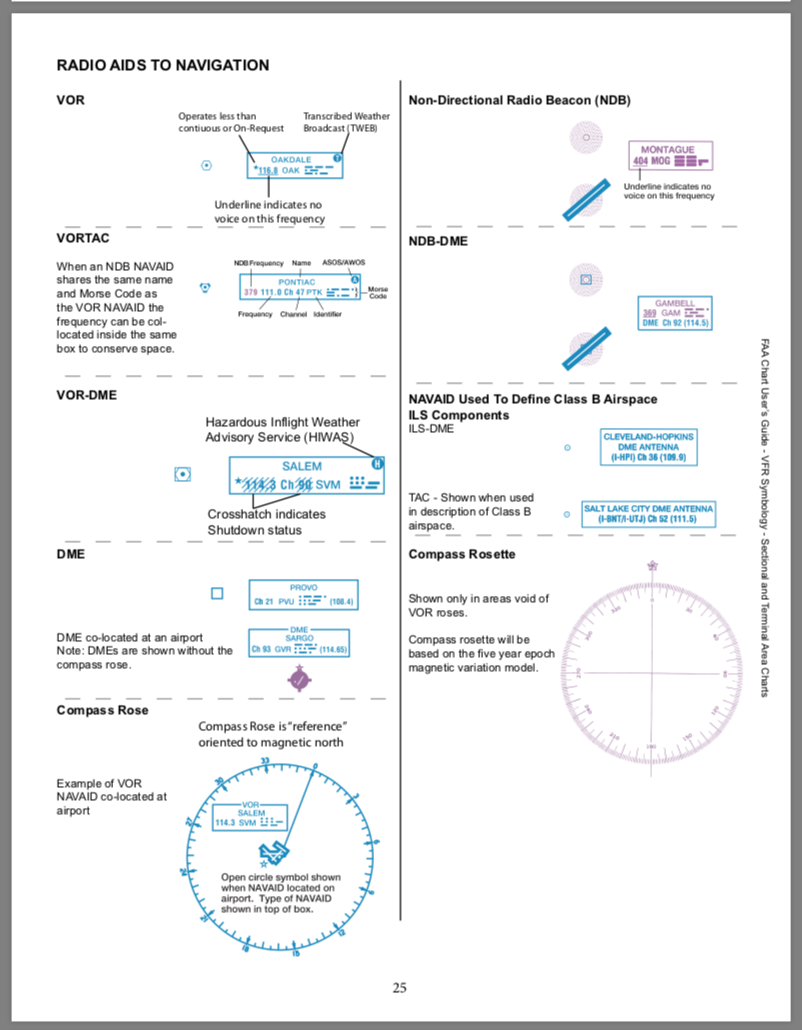


* The ICAO Aviation English for Cadet Entry Pilots course includes units from both Radiotelephony 101 and Basic Aeronautical Knowledge in addition to a very well-regarded language development course, so which you choose depends on the balance of language / knowledge that our expert teachers think is most suitable for you.
Part 1b: Listening to an ATIS or VOLMET
After you have digested the information above the assessor will play a recording of either an ATIS (read our guide to listening comprehension of ATIS broadcasts) or a VOLMET (VOLMET broadcasts are similar to ATIS broadcasts but cover a wider region, eg Hong Kong, Macau, Taipei, Guangzhou).
You should listen carefully to the ATIS / VOLMET recording as it may give clues as to what will occur during the roleplay activity. For example if there is a NOTAM about birds in the vicinity it is highly likely that you may encounter an engine failure or a bird stuck in the landing gear mechanism. Similarly, if there is a report of construction work north of taxiway echo you can predict that there will some kind of construction vehicle, foreign object debris or tool in a location that it shouldn't be.
Example ATIS
HONG KONG DEPARTURE INFORMATION O AT TIME 0438
DEPARTURE RUNWAY 07R
DELIVERY
WIND 060 DEG 010 KT
VISIBILITY 10KM
CLOUD FEW 4000FT
TEMPERATURE 26 DEWPOINT 14
QNH 1021 HPA
ACKNOWLEDGE INFORMATION O ON FIRST CONTACT WITH DELIVERY
The range of vocabulary required is predictable and is adequately covered on Aviation English Asia Ltd courses.
 TOP TIP: Practice listening to ATIS and VOLMET broadcasts on Aviation English Radio during your free time. Our student radio station, Aviation English Radio is a free resource on www.aviationenglish.com to provide high-quality listening material to learners of Aviation English.
TOP TIP: Practice listening to ATIS and VOLMET broadcasts on Aviation English Radio during your free time. Our student radio station, Aviation English Radio is a free resource on www.aviationenglish.com to provide high-quality listening material to learners of Aviation English. 
We have specifically recorded and selected interesting (and sometimes challenging) recordings from various towers around the world.
In addition to the high-frequency vocabulary you should also improve your listening comprehension of numbers and letters. Listen in your free time, and don't think about it too much because that's how native speakers of English listen to radio. Once you are familiar with the format of information in an ATIS you can practice your note taking strategy. Try to use pilot shorthand, or write in clear handwriting. Aviation English Asia Ltd teachers can show you how if you are not sure.
Try to remember the information in the ATIS/VOLMET because at the end of each role play scenario the assessor may ask you some questions about time, runways in use, weather information, and any Notice to Airmen.
Part 1c: Roleplay
This part of the test is supposed to assess your ability to use plain English in non-routine situations. This includes
- comprehension of transmissions by ATC
- making clear transmission of information in plain English
- Switch between phraseology and plain English
- Manage the interaction with the ATC
- Use functional language to repair a miscommunication
 Even though you need to readback instructions from the ATC using standard phraseology, you are not assessed on the accuracy of either your readback or your use of standard phraseology. This creates a problem which exemplifies the worst of both worlds - candidates are assessed on "utterances" in plain English made in between standard phraseology (which you may have little or no experience of). It is highly likely that ab initio candidates will hesitate during this transition as they are focusing on using correct phraseology not on using English.
Even though you need to readback instructions from the ATC using standard phraseology, you are not assessed on the accuracy of either your readback or your use of standard phraseology. This creates a problem which exemplifies the worst of both worlds - candidates are assessed on "utterances" in plain English made in between standard phraseology (which you may have little or no experience of). It is highly likely that ab initio candidates will hesitate during this transition as they are focusing on using correct phraseology not on using English.
Similarly, experienced pilots are not assessed on their comprehension of clearances (which is critical to their work and the source of many problems in Asia), but on basic structures and high frequency vocabulary which are rarely a problem.
The roleplay activity will then begin. The assessor will play the role of Air Traffic Controller and begin reading from a script which to some degree matches your actions up to this point. If the assessor asks a question, such as "Have you pushed back yet?" or "Can you see the 747 passing behind you?" you should respond in plain English or standard phraseology depending on which is appropriate. However, as the test is not supposed to assess you on your use of standard phraseology it is better to use plain English.
Let's look at some examples of what responses could be made to the above questions.
| Prompt | Response in standard phraseology | Response in plain English |
| Ocean123, have you pushed back yet? | Affirm, Ocean123. | Yes, we have. Ocean123 |
| Ocean123, can you see the 747 passing behind you? | Negative, Ocean123 | No, not yet. Which direction is she coming from? Ocean123 |
CONSIDER: What do you think an assessor could assess about your language proficiency from the responses given above?

At some point during the roleplay you may see a picture, which is a visual prompt for you to explain an unusual situation, such as a bucket on a taxiway. Don't wait for the assessor to prompt you - when you hear a chime and see a flashing symbol, that indicates that you need to pass your message. Sometimes the intended meaning of symbols might not be obvious, for example ice accumulation on the wings. At that point, jump out of the roleplay and just ask the assessor what it is supposed to mean.
This article teaches you some structures that you can use to report non-routine situations to the Air Traffic Controller in the roleplay activity.
The assessor may also ask you a question about your message
| Prompt | Response in standard phraseology | Response in plain English |
| Ocean123, confirm you have a failure on engine number 1? | Negative, engine number 2 has failed, I say again engine number 2 has failed, Ocean123. | Incorrect, it is engine number 2 which has failed, Ocean123 |
| Ocean123, your message was garbled, say again. | Request immediate descent due ice accumulation, Ocean123 | Request immediate descent due to ice accumulation, Ocean123 |
Part 1d: Briefing cabin crew
If you have the en-route scenario you may also be asked to brief cabin crew in plain English about a non-routine situation.
Airlines typically have their own Standard Operating Procedures for this but you may want to try practicing the following two formats. To enhance the effectiveness of the briefing, the briefing should be short and to the point.
| NITS BRIEFING | STAR BRIEFING | |||||||||||||||||||||||||||||||
|
|
As a commercial pilot you will be familiar with the above scenarios, but as an ab initio it may be a few years before you are dealing with depressurisation, and whatever SOP you try to learn will most likely be out of date by the time the airline teach you how to do it their way.
Example of a NITS briefing -
CONSIDER: What do you think an assessor could assess about your language proficiency from the activity above?
 In order to avoid giving you clues about the audio the assessor will not provide any feedback or answers about the role play activity, but at the end of 1c the assessor will ask you some questions about the ATIS/VOLMET you heard at the start of the test. You may have forgotten the information, so make sure that you can read your own handwriting.
In order to avoid giving you clues about the audio the assessor will not provide any feedback or answers about the role play activity, but at the end of 1c the assessor will ask you some questions about the ATIS/VOLMET you heard at the start of the test. You may have forgotten the information, so make sure that you can read your own handwriting.
The roleplay activity will then repeat with the next scenario, so you perform two roleplays in total.
Part 2: Monitor and report

This is listening comprehension of non-routine situations during flight. The activity takes about 7-10 minutes and involves listening to a 5 minute piece of audio between several aircraft and several air traffic control stations.
The situations occur in the following phases of flight:
- departure
- en-route
- arrival
At the end of the 5 minute recording the assessor will not ask you any specific questions about the recording. Instead the assessor will ask you to report ONLY the non-routine situations which were included. The task is intended to assess your ability to listen and distinguish routine and non-routine situations in an evolving context. For example an aircraft initially in a routine situation may later be in a non-routine situation. This means that you will need to process information and prioritise which factors are relevant. You should take notes as you listen - in bullet point form. At the end of the recording the assessor will ask you to make a report in as much detail as possible.
If you are familiar with wide range of non-routine situations from the ICAO Aviation English for Cadet Entry Pilots course this will be relatively easy, as non-routine situations and associated vocabulary are classified under the AEROSTA Framework.
 Many candidates have difficulty with listening comprehension for at least one of several reasons. In this article Advice for Candidates Scoring ICAO Level 3 in Comprehension we classified the main reasons as
Many candidates have difficulty with listening comprehension for at least one of several reasons. In this article Advice for Candidates Scoring ICAO Level 3 in Comprehension we classified the main reasons as
- Lack of familiarity with radiotelephony / standard phraseology
- Lack of aviation-related vocabulary - aileron, backtrack, laminar flow
- Lack of proficiency in identifying non-technical vocabulary - which significantly changes the meaning of a sentence
- Lack of proficiency in identify the grammatical structure of a sentence - which significantly changes the meaning of a sentence
- Lack of proficiency in identifying sounds - leading to confusion of "similar" sounding words
But the good news is that in CLEAR the recordings are not usually affected by
- interference
- low volume
- strong unusual accents
- high rate of words per minute
- a lot of slang or other idiomatic speech
This is a good thing, so don't waste time listening to poor quality audio with lots of distortion - practice listening to interesting audio in a class with Aviation English Asia. We can give you proper feedback and guide you to improve your listening comprehension in the most effective way.
What language skills are required?
- Receptive skills - hearing utterances, recognising vocabulary, prioritising relevant information, linking past and present events
- Productive skills - reporting, verbs, tenses, prepositions, articles etc (classified as Basic and Complex structures in the AEROSTA Framework),
- Proficiency - infrequent difficulties with pronunciation, appropriate vocabulary, fluency
 Reporting involves giving information to another person - to perform well in a CLEAR ICAO English Assessment you need to be able to describe these kind of situation clearly in plain English. With professional training from Aviation English Asia you will be able to understand a wide range of unexpected situations that can occur in flight, organise your thoughts and report them clearly and without hesitation. You will also be able to reinforce your aviation knowledge.
Reporting involves giving information to another person - to perform well in a CLEAR ICAO English Assessment you need to be able to describe these kind of situation clearly in plain English. With professional training from Aviation English Asia you will be able to understand a wide range of unexpected situations that can occur in flight, organise your thoughts and report them clearly and without hesitation. You will also be able to reinforce your aviation knowledge.
This is one format that you can use to structure your answer. But don't limit your report to just one structure - learn other structures for clear, concise communication with Aviation English Asia Ltd.
| CALL SIGN | PROBLEM / EVENT | ACTIONS / INTENTIONS |
| Ocean123 | had a problem with engine number 1 just after take off | therefore he requested to return immediately. |
| Ocean456 | was stuck on runway 27 due to a locked brake | so the ATCO told Ocean 123 to go around. |
For more practice of reporting information, this article provides some strategy for this - Describing unusual situations in ICAO English tests.
CONSIDER: What do you think an assessor could assess about your language proficiency from the activity above?
Part 3: Describe and discuss a photo
There are two speaking tasks in part 3 - describing a photo, and discussing aviation-related topics connected to the photo. The tasks should take about 8 minutes in total.
You are encouraged to speak at length in as much detail as possible. This is so that the assessor has enough utterances to assess you on.
What language skills are required?
- Productive skills - speaking at length about work-related topics, basic and complex structures, appropriate vocabulary
- Receptive skills - managing a dialogue with the assessor but not listening comprehension itself
- Proficiency - infrequent difficulties with pronunciation, appropriate vocabulary, fluency.
How to prepare
 In practice there are very few images used in the CLEAR Assessment in Hong Kong and all images are now freely available on the internet and have been widely circulated by candidates since CLEAR was first used in Hong Kong. Picture description is no longer the communicative function of "giving a visual impression" as stipulated in ICAO Document 9835, but a task of scripting, rehearsing and presenting a photograph using stock phrases. Aviation English Asia recommends not focusing on just images that you know are in the test, but also develop language to give a visual impression of a wide range of scenarios. If you are one of those candidates who want to just focus on the images you know to be in the test, at least learn why the incidents happened and develop the language to explain it clearly in English.
In practice there are very few images used in the CLEAR Assessment in Hong Kong and all images are now freely available on the internet and have been widely circulated by candidates since CLEAR was first used in Hong Kong. Picture description is no longer the communicative function of "giving a visual impression" as stipulated in ICAO Document 9835, but a task of scripting, rehearsing and presenting a photograph using stock phrases. Aviation English Asia recommends not focusing on just images that you know are in the test, but also develop language to give a visual impression of a wide range of scenarios. If you are one of those candidates who want to just focus on the images you know to be in the test, at least learn why the incidents happened and develop the language to explain it clearly in English.
Here are some images from previous versions of the CLEAR Assessment. We have provided some model answers just to show you how different a native speaker is from the convoluted "speeches" that candidates often rehearse.

Model answer: "This is the right wing tip of a Boeing 747-400 and an Embraer 135 twin-engined business jet with severe damage to the T-tail. In the background there are five vans and in the foreground here are several investigators wearing flourescent high-visibility jackets. There are some clouds in the sky."
Possible discussion questions:
- What are the causes of incidents like this?
- How can collisions on taxiways be prevented?
- Give some examples of how ambiguity in airport signage can cause incidents.
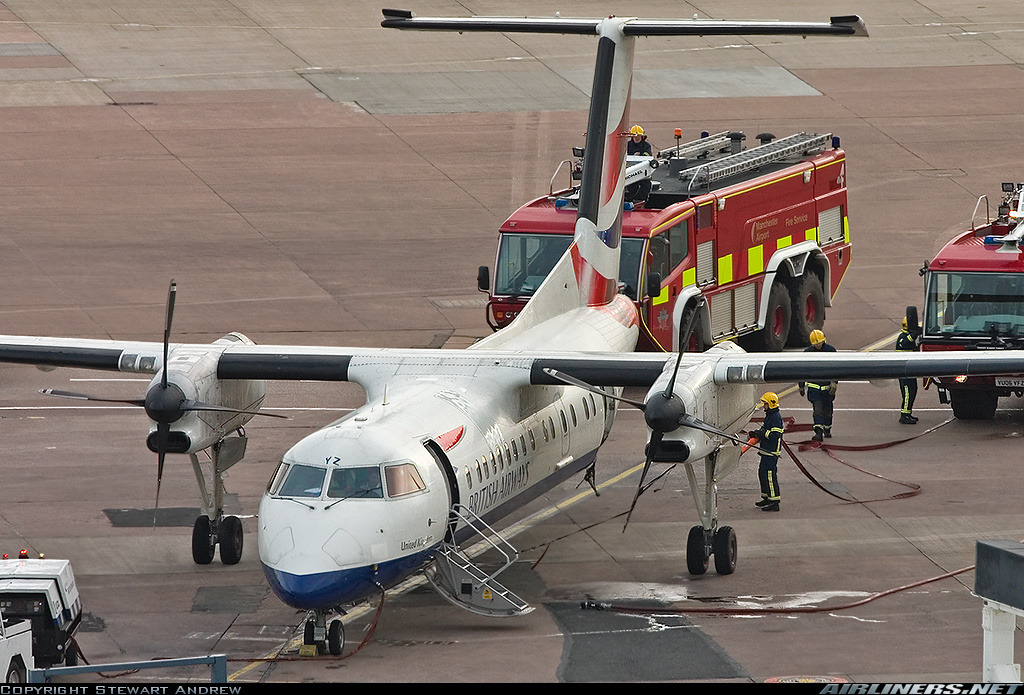
Model answer: "This is a photograph of G-BRYZ by the famous aviation photographer Stewart Andrew. It clearly shows a British Airways CitiExpress twin-engined propeller powered aircraft on the ramp. The Airport Fire Service are attending to an oil leak on the port side of the aircraft which was spotted as the passengers were disembarking and the aircraft was quickly evacuated. The L1 door is open and fire fighters are holding a fire hose. There is some liquid, or perhaps oil on the ground below the propeller."
Possible discussion questions:
- What are the causes of incidents like this?
- How can engine fire be prevented?
- What are the effects of toxic fumes on humans?

Model answer: "There is a light aircraft flying close to the rim of an erupting volcano. There is a lot of magma, and in the background some fumes and volcanic ash."
Possible discussion questions:
- What are the causes of volcanic eruptions?
- How can volcanic eruptions be detected?
- What are the effects of volcanic ash on engines?
CONSIDER: What do you think an assessor could assess about your language proficiency from the tasks given above?
The truth is, the answer to a question is not that important, it’s how well you answer it. It’s your pronunciation, use of correct grammatical structure, range of vocabulary, fluency and lack of hesitation and appropriateness of your answers too. The test is supposed to be dynamic and the assessor is supposed to ask questions based on your responses so you will need to respond appropriately too.
 We have written several articles about describing photos previously, but instead of talking about the picture itself, lets develop language to talk about the reasons behind the incidents pictured above. You can read the lesson here.
We have written several articles about describing photos previously, but instead of talking about the picture itself, lets develop language to talk about the reasons behind the incidents pictured above. You can read the lesson here.
What do I need to do next to prepare for the CLEAR Assessment
Aviation English Asia Ltd has created some excellent free resources to help candidates prepare for the ICAO English test but most candidates will need professional help and feedback to prepare for the test. Therefore we recommend that you join one of our courses.
Aviation English Asia Ltd has helped hundreds of students succeed in an aviation career, and is the only genuine provider of Aviation English in Hong Kong. Classes are available in daytime and evenings, and we can help you improve your English whether you are an experienced pilot or a candidate for a cadet pilot programme, with custom courses designed specifically for your needs. If you are an airline of airport employee in Hong Kong you may also be eligible for reimbursement of course fees.
Aviation English Asia Ltd's ICAO Aviation English courses are pre-approved as reimbursable under the HKSAR government Maritime and Aviation Training Fund (MATF) Professional Training and Examination Refund Scheme. Hong Kong residents who are in full-time employment in the aviation sector with an organisation / company in Hong Kong are eligible for a reimbursement of up to $18,000. (MATF Course code: AC047)
For more information about Aviation English Asia’s courses please visit http://aviationenglish.com. When you are ready to improve your English email
#Aviation English #English for Cadet Entry Pilots #Hong Kong
- Details
- Written by: Michael
- Parent Category: Learning Zone
- Category: Learning Advice
English learning advice from Aviation English Asia.
Pronunciation is a fundamental part of language learning. ICAO advises that "pronunciation must be given high priority", therefore Aviation English Asia Ltd courses emphasise pronunciation. Research indicates that better pronunciation also leads to better listening comprehension.
Some elements of pronunciation relevant at ICAO level 4 are -
- Stress – The emphasis of words or parts of words (syllables), but can also include weak sounds
- Rhythm – The speed of communication, including when to pause and when to speed up
- Intonation – The high, middle and low levels of speech, especially when asking questions
- Vowel sounds - long and short vowels
- Consonant sounds, including consonant clusters but not /th/
- Accent / dialect - "use a dialect or accent which is intelligible to the aeronautical community."
The ICAO Language Proficiency Requirements state that at level 4, "Pronunciation, stress, rhythm, and intonation are influenced by the first language or regional variation but only sometimes interfere with ease of understanding." It's not so much a matter of accent, but more about intelligibility. Intelligibility means how understandable you are, and how much effort is required on the part of the listener in order to understand you.
It is beneficial to listen to a wide range of accents and dialects. As you listen, consider which accents are most difficult for you to understand.
- British English – this tends to include stronger pronunciation of consonants like "t", for example "often" is usually pronounced "offt-un"
- American English – in comparison consonant sounds tend to sound weaker, "often" sounds like "off-un."
You should be aware of different accents and practice listening to authentic recordings on Aviation English Radio and our YouTube channel at every opportunity. While listening, consider if every consonant sound like "t" and "l" is pronounced? Consider the speed of interaction. What differences can you hear with native and non-native English speakers?
Consonant sounds
Omitting vowel and particularly consonant sounds can decrease all intelligibility.
For example, would you say "requ vect" when it should be "request vectors?" Looking at the word "vectors" consider the following: -
- "Vec-ors" – is this recognisable?
- "Ve-tors" – how about this?
It may be acceptable to very occasionally omit consonants in the middle of words, but be careful and develop the ability to self-correct whenever possible. Strategies to self-correct and practice pronunciation will be taught in greater detail with your instructor at Aviation English Asia.
Checklist
- Intelligibility, intelligibility, and intelligibility.
- Try to be as accurate as possible
- Listen to a variety of accents from real ATC recordings.
- Consider which sounds you find difficult to speak and hear
The best way to improve your pronunciation is with Aviation English Asia Ltd. Supplementary Classes focused on pronunciation are held each weekend.
For more information about Aviation English Asia Ltd’s courses please visit http://aviationenglish.com.
- English course content similar to the real ICAO test?
- The right thing at the right time
- Asking questions - Interview with a Boeing 747 test pilot
- What level of English do I need to pass an ICAO English test?
- Describing unusual situations in ICAO English tests
- Get professional help preparing for theory exams/interviews
- English learning strategies for pilots and air traffic controllers
- Advice for Candidates Scoring ICAO Level 3 in Comprehension
- Which language skills do you most need to improve, right now?
- Improve your listening comprehension of pilot/ATC dialogues
Contact Us Today
Hong Kong
Aviation English Asia has been offering part time and full time courses in Hong Kong since 2009.
All courses are available in Hong Kong. Check the schedule above for details.
Vietnam
Aviation English Asia has been offering part time courses in Vietnam since 2014.
All courses are available in Vietnam - typically every 8 weeks, or by special arrangement.
Taiwan
ICAO Aviation English, English for Aircraft Maintenance Engineers, Technicians and Mechanics, and English for Flight Attendants are available in Taipei, Tainan and Kaosiung.

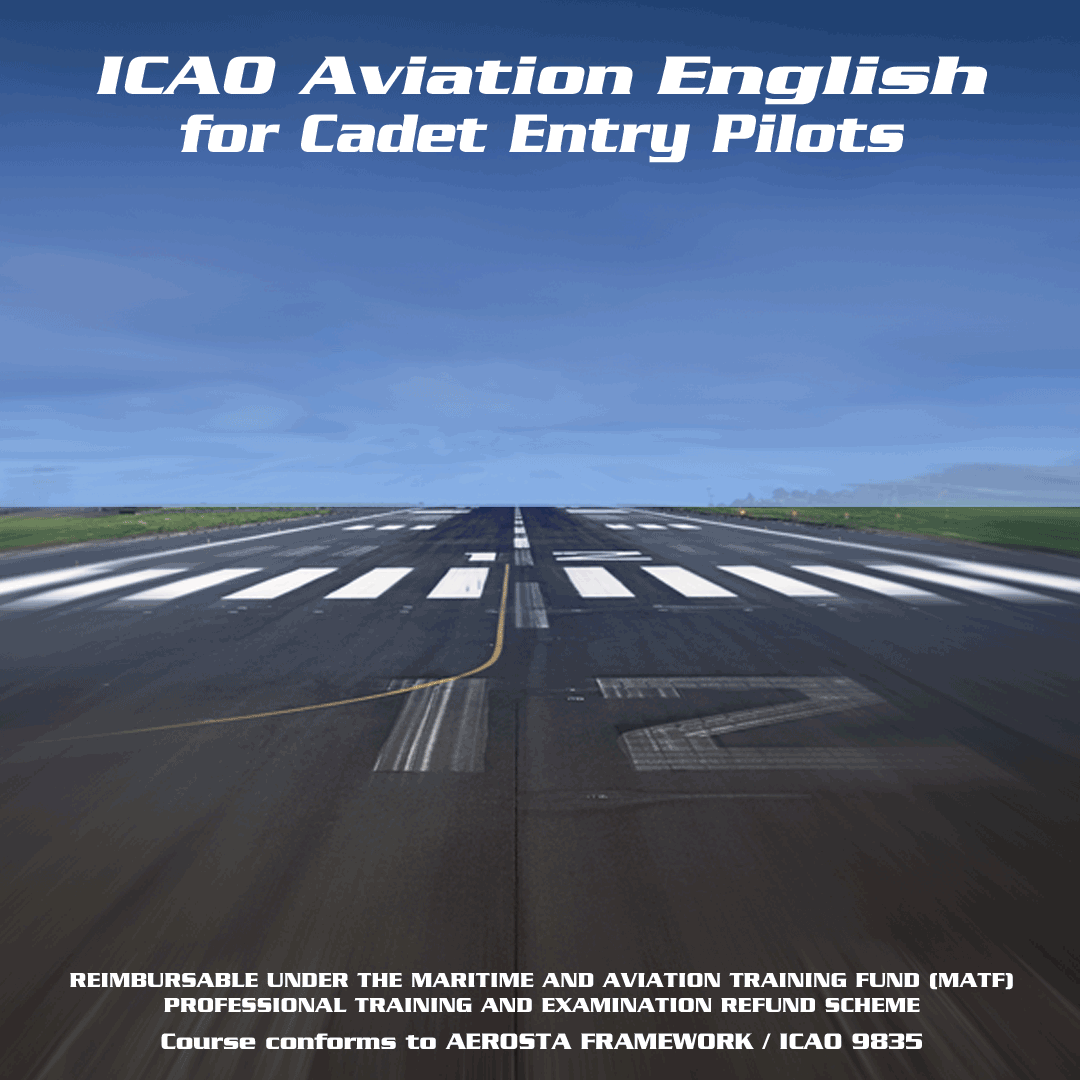
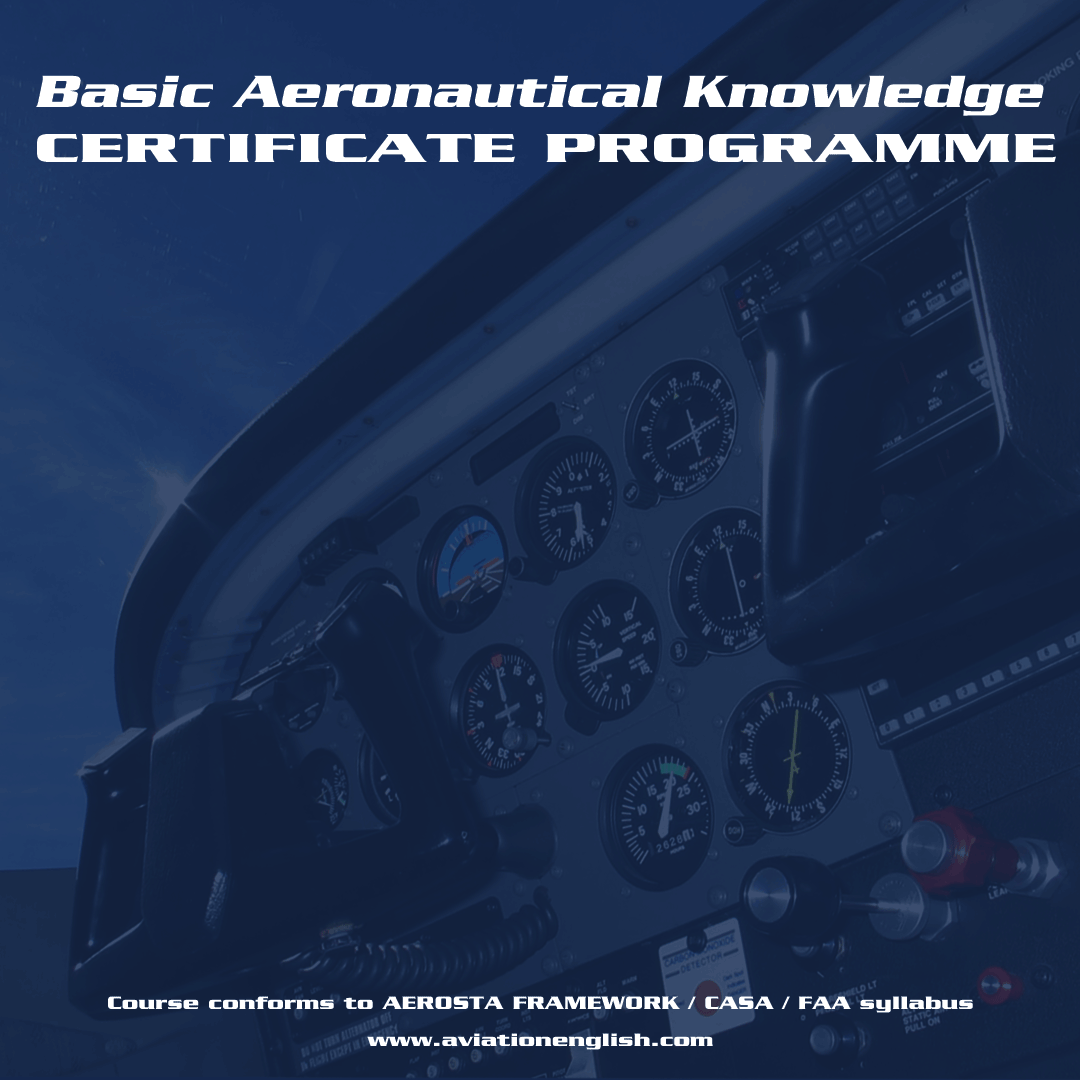
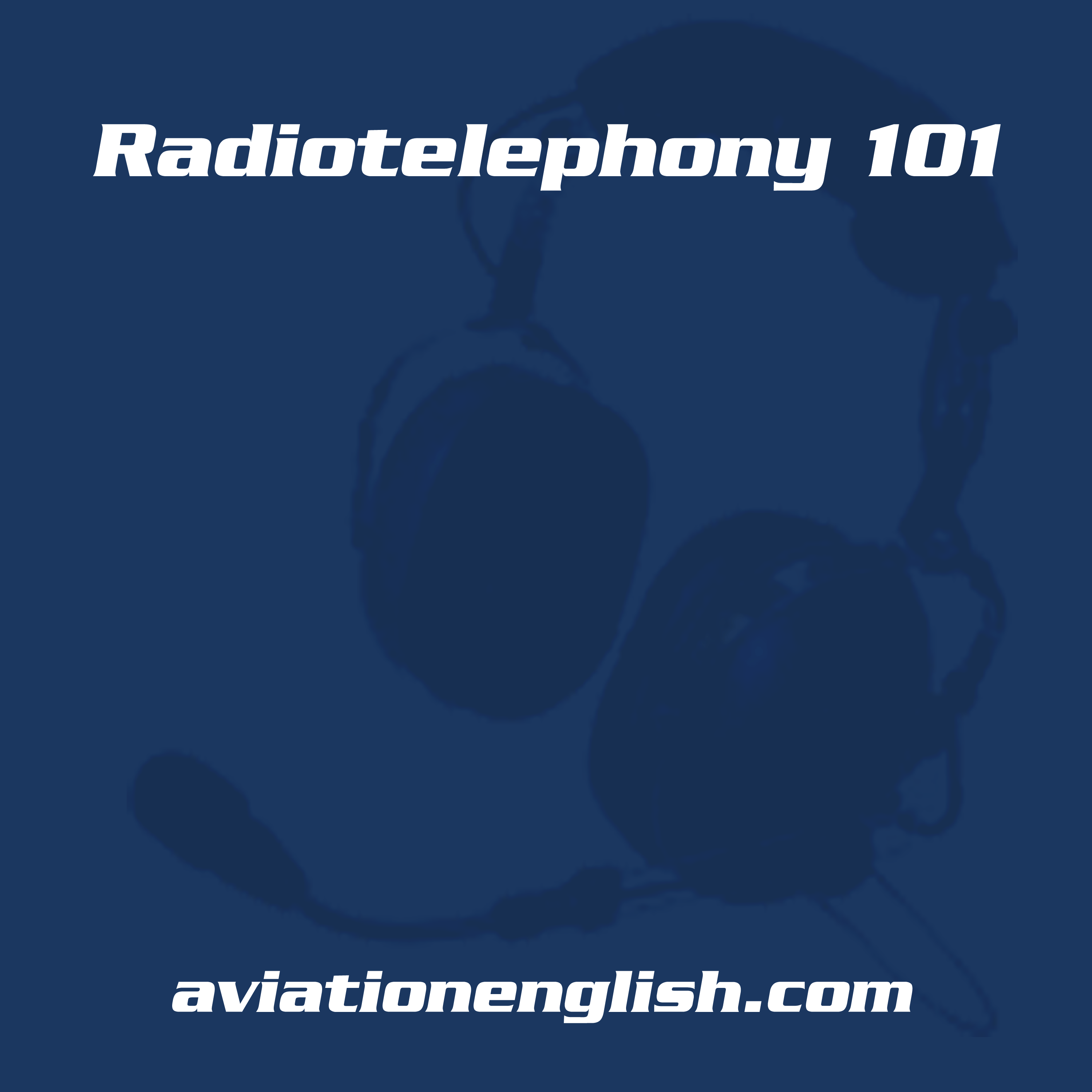


.jpg)